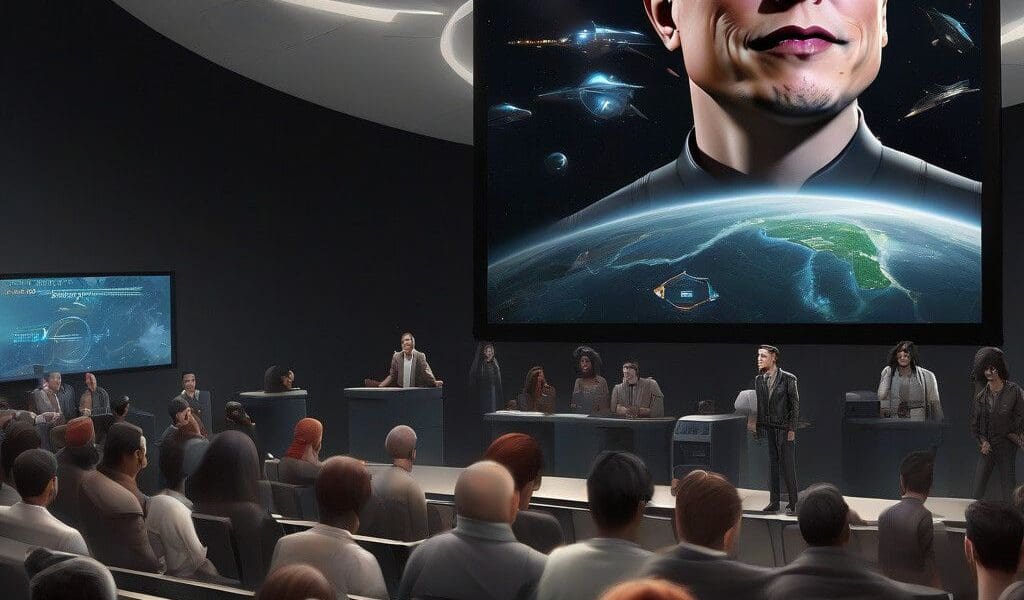Starlink's Compliance with Brazilian Court Order: A Case Study in Corporate Responsibility and Regulatory Power
Elon Musk’s Starlink has recently found itself in the midst of a significant legal confrontation with Brazilian authorities. This situation escalated dramatically when the Brazilian Supreme Court, led by Judge Alexandre de Moraes, issued an order requiring the company to block access to the social media platform X, previously known as Twitter. The ruling mandated the freezing of Starlink’s financial accounts to secure payment for fines owed by X, underscoring the complex relationship between regulatory power and corporate compliance.
The crux of this issue began when Judge Moraes mandated that all internet service providers in Brazil block access to X due to its failure to maintain a designated legal representative in the country, a requirement that had been stipulated by the court. This ruling was ratified by a panel of Supreme Court justices, essentially leading to a nationwide shutdown of the platform. Initially, Starlink resisted this directive. In a communication to Brazil’s telecommunications regulator, Anatel, the company indicated its intent to defy the court order. However, this course of action quickly changed as Starlink, under mounting pressure, began to comply with the ruling.
By implementing the access block, Starlink positioned itself at the intersection of technological service provision and legal accountability. The company, which serves over 200,000 customers in Brazil, expressed its dissatisfaction, labeling the freezing of its assets as unlawful. They initiated legal proceedings in the Brazilian Supreme Court, arguing that the actions described in Moraes’ ruling violated constitutional protections. However, the company’s delay in filing a new appeal concerning the asset freeze left its legal strategy tenuous.
This conflict has its roots in prior actions taken by Judge Moraes, which emphasized the necessity for platforms like X to curb the spread of disinformation and hate speech by blocking controversial accounts. Musk has previously criticized such actions as censorship and retaliated by closing X’s local office in Brazil. This series of events delineates a growing tension between state authority and Musk’s liberty to operate his businesses, casting a spotlight on regulatory measures applied to technology firms within sovereign jurisdictions.
As the standoff progressed, users in Brazil began circumventing the access block via Virtual Private Networks (VPNs), which highlights the ongoing struggle for digital freedom in an environment increasingly influenced by governmental directives. The implications of this conflict extend beyond the immediate compliance of Starlink; the incident raises pivotal questions about the balance of power between tech companies and governments, particularly concerning issues of free speech, corporate responsibility, and the role of regulatory frameworks in the digital age.
The importance of this situation cannot be overstated. It illustrates the potential repercussions of governmental actions against a large international technology firm. Should Starlink’s situation become a precedent, it could embolden regulatory authorities in other countries to enforce similar restrictions, further complicating the landscape in which digital platforms operate globally.
Moreover, the backlash faced by Starlink represents a growing sentiment among businesses that their rights and freedoms could be compromised in the face of stringent regulatory policies. This case serves as a reminder for tech companies about the importance of establishing strong legal frameworks and maintaining open lines of communication with local authorities to mitigate the risks associated with abrupt compliance demands.
It is worth noting that the broader international context of this conflict is significant. As internet governance continues to evolve, jurisdictions are increasingly wielding regulatory power to address issues ranging from misinformation to data privacy. Companies like Starlink, which operate across multiple countries, must navigate this complex landscape proactively.
In conclusion, the situation involving Starlink and the Brazilian judiciary exemplifies the intricate dance between corporate entities and regulatory authorities. As technology firms strive to maintain operational integrity while adhering to local laws, a deeper understanding of these dynamics becomes essential. The ongoing saga not only marks an important chapter in Musk’s ventures but also offers critical lessons for the future of digital activism and corporate governance worldwide.








